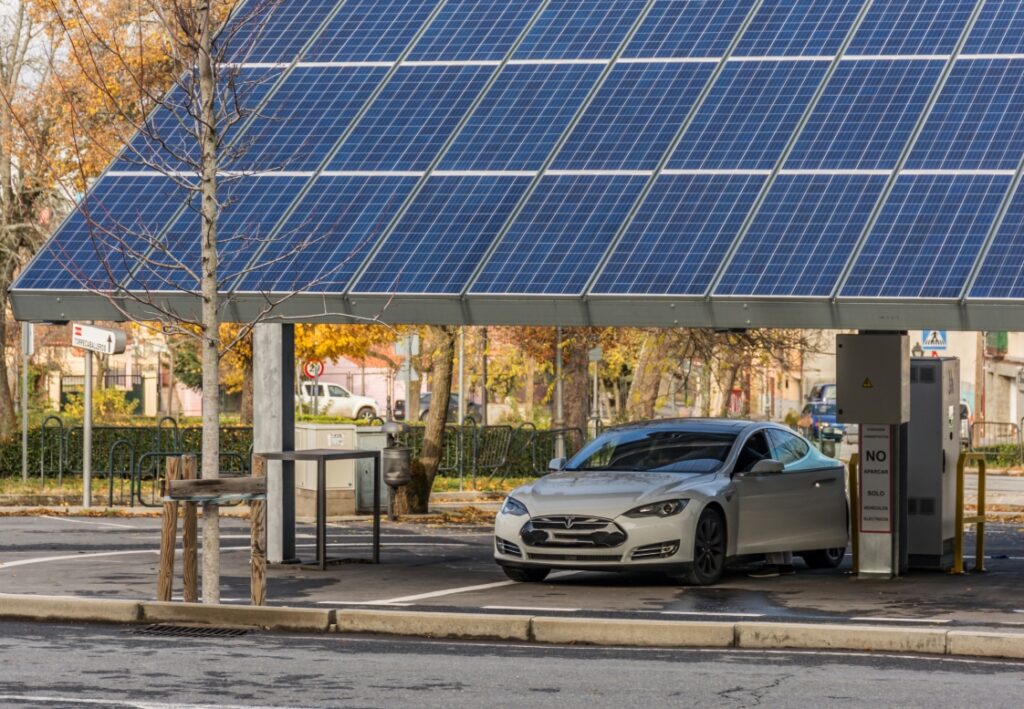In the ongoing effort to combat climate change and reduce the carbon footprint, solar-powered electric vehicle EV charging stations offer a powerful and practical solution. As the world increasingly shifts towards electric mobility, integrating solar photovoltaic PV technology with EV charging infrastructure represents a significant step forward in achieving sustainable transportation. Solar-powered charging stations provide a clean, renewable energy source that not only minimizes greenhouse gas emissions but also enhances the efficiency of the energy systems. Solar PV technology harnesses the sun’s energy to generate electricity, making it a renewable and inexhaustible resource. By installing solar panels at EV charging stations, the electricity required to charge electric vehicles can be produced on-site, reducing dependence on fossil fuels and the associated emissions. This direct use of solar energy for EV charging dramatically cuts the carbon footprint of electric vehicles, as they are charged with clean power rather than electricity generated from coal or natural gas. Consequently, this integration helps to further reduce the overall environmental impact of transportation, which is essential for meeting global climate goals.

One of the primary advantages of Beny solar-powered EV charging stations is their ability to operate independently of the traditional power grid. During peak sunlight hours, solar panels generate electricity that can be used immediately to charge EVs, or stored in batteries for later use. This reduces the demand on the grid, particularly during high consumption periods, and mitigates the need for energy derived from non-renewable sources. Furthermore, excess energy generated by the solar panels can be fed back into the grid, contributing to the overall supply of clean energy and supporting the broader transition to renewable power. Economic benefits also accompany the adoption of solar-powered EV charging stations. As the cost of solar technology continues to decrease, investing in solar panels becomes increasingly cost-effective. Solar-powered charging stations offer long-term savings by reducing electricity bills and providing a reliable source of energy. Businesses and property owners can benefit from various incentives and tax credits available for renewable energy projects, further enhancing the economic feasibility of solar installations. Additionally, by demonstrating a commitment to sustainability, organizations can enhance their public image, attract eco-conscious customers, and meet corporate social responsibility goals.
Moreover, solar-powered EV charging stations contribute to energy resilience and click to read more https://www.beny.com/ko/ and gain ideas. In areas prone to power outages or where the grid is unreliable, solar panels provide a dependable and autonomous energy source for charging electric vehicles. This enhances the reliability of transportation infrastructure and ensures that EVs remain operational even in adverse conditions. In conclusion, adopting solar-powered EV charging stations is a proactive and effective strategy for reducing your carbon footprint. By leveraging the clean, renewable energy of the sun, these charging stations diminish reliance on fossil fuels, lower greenhouse gas emissions, and contribute to a more sustainable energy system. As we strive to address climate change and move towards a cleaner future, solar-powered EV charging stations stand out as a pivotal solution in the drive for environmental responsibility and energy efficiency.